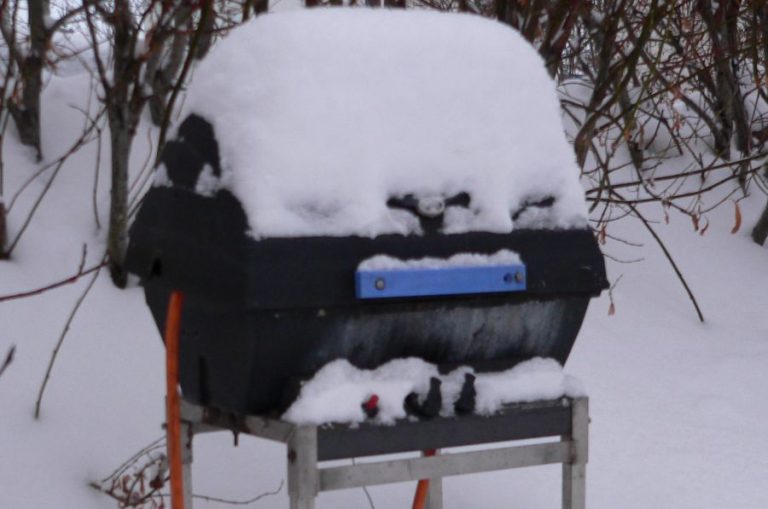Prepare your Empty House for the Winter
The moment summer comes to an end, and winter gradually approaches, many snowbirds worldwide begin to prepare to head south or other warmer regions to spend the rest of the colder months of the year. However, before leaving your homes or property for the holidays, some simple things should be done or attended to prevent disaster or accidents while you're away. These include turning off electrical appliances and unplugging them, turning off the water supply and drainage waterline, cleaning, etc. All these will help prevent disasters from happening while you're away.
Prepare your empty house for the winter:
- Plumbing, Pipes, and Utilities
- Kitchen and kitchen appliances
- Prepare the Rest of the Home
- Inspect the Surroundings
- Improve your Home Security

Regardless of how long you'll be gone or planning to fly the coop for the entire winter period, it is essential to prepare your vacant house for winter before you leave. Not taking the necessary precautions can lead to severe damage to your property and may incur unplanned expenses. Do you want to know how to prepare your empty home for the winter? Do you need help with how to go about it? Don't look too far. In the rest of this article, we have gathered essential tips and guidelines for preparing your vacant house for the winter. Follow the simple steps below to help avoid any unwanted surprises when you return from your trip. By following these steps, you'll be able to protect your home from water damage, theft, electrical malfunction, and other possible damage that may arise while you're away for that extended period. Below are some essential tips to consider.
Contents
Tips to Prepare a Vacant Home for Winter
To make sure a home remains in great shape all through the winter, it needs regular care and attention. Typically, once people occupy a home, most of the things required to keep it functioning in good condition happen by default. However, if you'll be leaving your home or closing up a summer vacation home for an extended time, you must pay attention to certain factors that can cause damage or deterioration while you're away. This is called winterizing your property. Generally speaking, the worst risk of damage usually comes from bursting pipes, which can lead to flooding or water damage that can significantly affect the gross value of the property. When not attended to, water can destroy anything it comes in contact with, such as wooden floors, walls, electrical installations, and more. It can even damage the foundation of the building. That is why buildings left unattended to for a long time end up getting weakened by water and eventually collapse. There is even the risk of other natural disasters such as pest and rodent infiltration, leaving a significant amount of damages for the homeowner before they arrive. If taken together, the dangers of not winterizing a home are way too serious to ignore. So it is vital that you carefully inspect both the interior and exterior of your home and do the needful before you leave. Divide your checklist into the categories listed below:
1. Plumbing, Pipes and Utilities
– Turn off the water supply
One of the most important things to do whenever you are leaving for the winter is to turn off your water supply completely. Leaving it on when the lines are not going to be used can lead to severe leakage or even a burst pipe, causing a lot of damage to your property. Always shut the water supply off at the main valve, or shut the breaker to the pump if you're using a well.
– Drain the waterlines
After shutting off the water supply, it is essential to check the water line to ensure that water does not remain in the pipes as they could freeze or expand. Hence, drain your waterlines by simply opening all the faucets in your home and flushing all the toilets. Ensure that you leave the water to run until it becomes low and eventually drained. Flush the toilets once more to empty their bowels, and if you're using a well as the main water supply, drain the pressure tank.
– Unplug all appliances
If you leave the power supply on, make sure you unplug all electric appliances such as your TVs and refrigerators. By doing this, you'll avoid the risk of fire in case of a faulty switch or power fluctuations. Don't forget to turn off the gas also.
– Turn down the thermostat
You shouldn't turn off your furnace entirely, as this could lead to freezing or breakage of pipes. Instead, turn down the thermostat to about 60 degrees to keep your home components near room temperature, as they should be.
2. Kitchen and kitchen appliances
– Clean out the refrigerator
Take out anything likely to go bad during the time that you'll be away. Then empty the freezer in case of a power outage for an extended period. Although you won't necessarily be aware if this happens, your food may have thawed and refrozen, which is very dangerous if consumed. Also, wash the refrigerator and freezer thoroughly, prop open the doors to prevent mold and mildew, as well as other odors that can get to the plastic part of the fridge. Finally, you can place an open bag of activated charcoal on the inside of the open refrigerator to prevent more odors.
– Remove items that can freeze
Take out all items that are susceptible to freezing, move all bottled liquids, such as soda, beer, and paint, as their containers may burst open once their contents freeze. You should also empty water from vases, jars, and other decorative items.
– Remove all food from the pantry
Dry foods should be placed in tin- or aluminum-lined cupboards or cabinets and locked away. Then seeds and grains should be stored in metal containers with tight seals.
– Guard against insects and rodents
Place a botanical rodent repellent under the sink and kitchen counters to guard against rodents and insect infestations.
– Throw out the trash
Always remember to empty all trash cans before you leave. You wouldn't want to come home to the foul odor of your trash when you return. Any food that could go bad when you're gone, take it out with the garbage also.
3. Prepare the Rest of the Home
– Wash everything
Make sure to wash clothing material such as linens, bedding, towels, and others and store them away in rodent-proof boxes to prevent rodent attack and damage. Strip the beds to allow the mattresses to air out. Finally, open up empty drawers and closets, and use mothballs to guard against insects in the others.
– Remove all flammable items
To prevent fire hazards and risks of damage, dispose of or remove potentially volatile items such as oily rags, spray bottles, stacked papers, and others before you leave.
4. Inspect the Surroundings
Protect the yards and garden
Beginning with the outside, ensure that all general maintenance of surrounding materials and tools are up to date and that all necessary repairs have been carried out before winter. For instance, a poorly maintained roof may easily collapse under the weight of heavy snow, and this could incur several costs for repair. Start by cleaning the area of any dirt, debris, or dry leaves; then proceed to the gutters to clear up moss, leaves, and other debris. Next, carefully inspect the roof to ensure that the roof coverings are still intact with intact tiles. Any damaged tiles should be repaired immediately as any deterioration and could allow rainwater into the roof space and your home.
– Remove anything touching the side of the house
Keep a reasonable amount of spacing between the walls of the house and materials such as firewood, as water and insects can accumulate in them, causing damage to the walls and leading to potential infestations. Ensure you keep everything away from the house to create a safe barrier and prevent water damage.
– Disconnecting the gas supply
Before you embark on your trip, make sure you inform your gas company so that they can disconnect the gas supply to your home. A gas explosion can cause more damage to the house than frozen pipes.
5. Improve your Home Security
Ensure that all windows and doors are securely locked or better still, fix an intruder alarm to ensure maximum security of your property. There are several measures to take to deter burglars in your area. If nothing, try to fit timer switches for lights or radios in several rooms. There are even smart home security systems that allow homeowners to monitor and control different home operations just from a smartphone app. Some come with a moisture sensor that detects water leaks or floods in the home. Amazing right?
Final remarks
No matter where you go or how long you'll be gone, your home remains your most significant investment. Hence, it is wise to keep it protected while you're away during the winter. We hope that this article has been helpful so far. Good luck.






